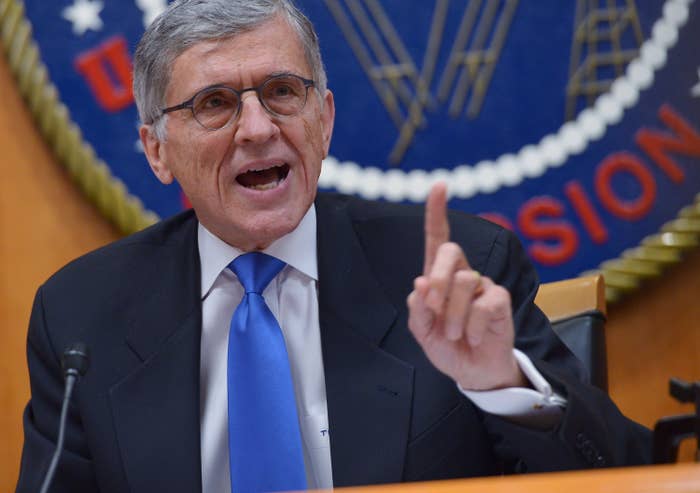
The Federal Communications Commission defended its open internet rules in court Friday, facing off against a telecommunication industry questioning its network neutrality regulations. Those rules, initially approved in February, block internet service providers (ISPs) from discriminating against web content, from establishing internet "fast-lanes," and from tweaking download speeds to favor or disfavor web content.
While the D.C. Court of Appeals has prevented the FCC from instituting such rules in the past, the commission, in its open internet rules, classified broadband providers as a kind of utility, granting the commission greater power to regulate them. The FCC believes net neutrality will help keep web services competitive for companies and consumers, free from the favoritism and discrimination of ISPs; in contrast, the telecom industry argues that the commission overstepped its authority, inviting government meddling, and interfering with the free enterprise of the broadband market.
Lawyers for both parties laid out their positions during more than three hours of oral arguments. A three-judge panel needled the attorneys with questions and challenged them with lines of argument.
"From the customer’s standpoint, broadband internet access is plainly an information service." —US Telecom
Arguing against the FCC, US Telecom believes that ISPs should be classified as an information service, like Google, rather than a telecommunication service, like a telephone company. As an information service, ISPs are subject to less stringent regulation, and under that classification, undermines the FCC's ability to impose net neutrality rules on broadband providers.
"The commission has abundant reason to be concerned about this." —Kevin Russell, representing public interest groups in support of the FCC
Absent open internet rules, allies of the FCC argue, ISPs will hold undue power as internet gatekeepers. Broadband providers can decide which content gets favored with speedier connectivity and which content is censored or "throttled." Not only does this harm consumers, they say, but it also discourages companies from investing in current web products and developing new ones. President Barack Obama swung his support in favor of net neutrality in November of last year, just three months before the rules were approved.
"You get something special, you pay something special." —Judge Stephen Williams
In the most contentious exchange of the day, Judge Stephen Williams pressed the FCC's lawyer, Jonathan Sallet, on the merits of "paid prioritization." The FCC maintains that allowing ISPs to charge streaming services and content providers a higher fee, in order to deliver their services faster, is an unfair arrangement that favors wealthy, established companies and harms smaller startups. Judge Williams said banning these fast lanes may do away with many innocent business relationships. He compared the concept of paid prioritization to a train passenger purchasing a more expensive ticket in order to sit in an air-conditioned train car.
Depending on where I stand in my house, does that determine if I'm subject to blocking? —Judge Sri Srinivasan
The judges also focused their questioning on wireless broadband — whether the FCC's supposed authority to impose net neutrality rules applies to mobile internet companies. In a question to US Telecom attorney Peter Keisler, Judge Srinivasan posed a hypothetical: Suppose he walked through the rooms of his house and his tablet's Wi-Fi signal dropped, causing the device to connect to a wireless satellite signal. Would Srinivasan then be susceptible to a new regime of rules, where blocking and throttling are acceptable practices? The question seemed to point to a real-world scenario in which a distinction between wired and wireless connectivity appeared, to consumers, arbitrary and unwanted.
"The most vague and impossible to predict standard." —Peter Keisler, representing US Telecom
Keisler described the FCC's open internet rules as an unlawful power grab designed to "maximize enforcement discretion" rather than adhere to the policies that Congress set out. For ISPs, he said, net neutrality functions as an economic hindrance, leaving companies uncertain on what the commission may retroactively deem as misconduct.
After a period of deliberation, the judges are expected to issue a decision by the spring of next year. The decision could affirm parts of the open internet rule while rejecting others. But no matter how they come down, both parties agree on what's at stake: the public's access to the free flow of information and continued vibrance of internet commerce.
